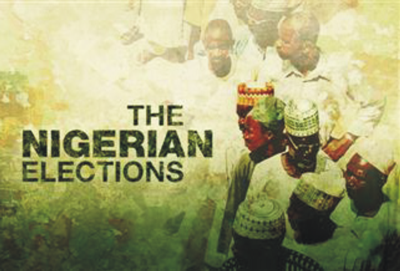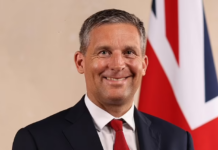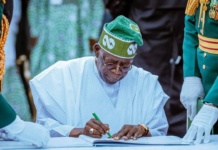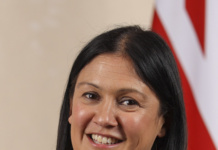After a false start in February, Nigeria’s presidential and national assembly elections will take place on 28 March. They were postponed from the original date of 14 February to allow the military to launch an operation against the Boko Haram insurgency in the northeast of the country. The elections come at a crucial moment for Nigeria, and the winner of the presidential race will quickly have to address serious security issues as well as intensifying economic problems.
Notwithstanding rumours of another last-minute postponement or challenges to the legality of General Buhari’s eligibility, these elections will be a test of the use of new technology by the Independent National Electoral Commission (INEC). In an effort to combat the fraud that has plagued previous elections, INEC will require Nigeria’s 68 million registered voters to produce permanent voter cards that match their personal details to a biometric register. However, there are widespread concerns that the system, though sound in theory, may fail in practice.
Assuming the card-readers work and that the accreditation and voting processes are smooth, the process is still vulnerable at the point of collation. Even in the event of a free and fair election, this period is likely to trigger significant violence, as in 2011 when over 800 people died and thousands were displaced. The atmosphere during and after voting is of serious concern, and the inflammatory language coming from supporters of the two main parties will only serve to make the mood more toxic.
Whoever wins the election will have multiple challenges to deal with, the most pressing of which is security. The conflict in the northeast has at times manifested itself in other parts of the country, exposing weaknesses in Nigeria’s security infrastructure. At present, a joint multinational force – comprising soldiers from Nigeria and neighbouring Niger, Cameroon and Chad – is fighting in three states in the northeast to reclaim territory from Boko Haram.
However, the presence of foreign fighters on Nigerian soil has not been without its problems. Poor communication has at times left Nigeria’s army in the shadow of the much more media-savvy Chadian forces, never shy about informing the international media of their campaign successes. This has increased diplomatic tensions between Nigeria and Chad.
In the Niger Delta, at the extreme southern end of the country, another security storm is brewing. Before the Boko Haram insurgency, the delta was the primary source of unrest; violence there may reignite if militants’ preferred candidates do not win. One group of former militants has threatened to wage war should Goodluck Jonathan lose the election, while another has pledged its loyalty to Buhari. There is also the thorny issue of the amnesty programme created by the late president Umaru Yar’Adua, which sought to persuade militants to lay down their arms in exchange for training, employment and a monthly stipend of $400. The programme is due to end after the elections, and this is stoking fears of a resumption of violence by up to 30,000 disgruntled former militants. The national security adviser, Colonel Sambo Dasuki, has said that under no circumstances will the programme continue as the government cannot afford it; however, a government source has suggested otherwise.
The economy is an equally daunting challenge. As a resources-led economy, Nigeria has benefitted from high oil prices, which have spurred impressive growth rates. Almost a year ago, a rebasing of GDP elevated Nigeria to the status of Africa’s biggest economy. However, the recent slump in oil prices has taken its toll. Whoever wins the elections will undoubtedly have to oversee deeply unpopular austerity measures. The naira – Nigeria’s currency – has been devalued to reflect this negative shift in the economy. It is likely to remain weak even in the event of a recovery. The government’s recent reduction in fuel prices will do little to ease the burden of rising consumer prices.
A major cut in government spending will impede attempts to overhaul the country’s dilapidated infrastructure. Transformation has been the driving theme of the incumbent’s campaign, but it isn’t clear how ambitious plans for upgrading roads and railways will be funded in the current economic climate.
Nigerian politics is largely personality-led, and this is evident in the large number of defections between both main parties. In the event of a Buhari presidency, his mantra of change will be sorely tested by the realities of forming a government. If, as widely expected, he were to feature familiar – and unloved – political stalwarts in his cabinet, supporters may find themselves waiting that bit longer for radical change.
INEC is committed to announcing the results of the presidential race within 48 hours after voting has stopped, but there is a possibility that there will be no outright winner. This would require an historic first for Nigeria: a presidential run-off. The 2010 Electoral Act stipulates that a run-off must take place seven days after the original poll if no winner is declared – something that INEC does not have the capacity to deliver. Although the National Assembly has passed an amendment to the act to allow three weeks to organize a run-off vote, the president has yet to sign it into law.
With new technology, a new opposition party presenting a first genuine alternative to the ruling People’s Democratic Party, and the ever-present threat of violence, the coming days and weeks are likely to be full of uncertainties and surprises. What is certain, however, is that these elections will be of historic significance for Nigeria and Africa, as the continent’s most populous country starts to move from democratic transition to consolidation with a truly open contest.











